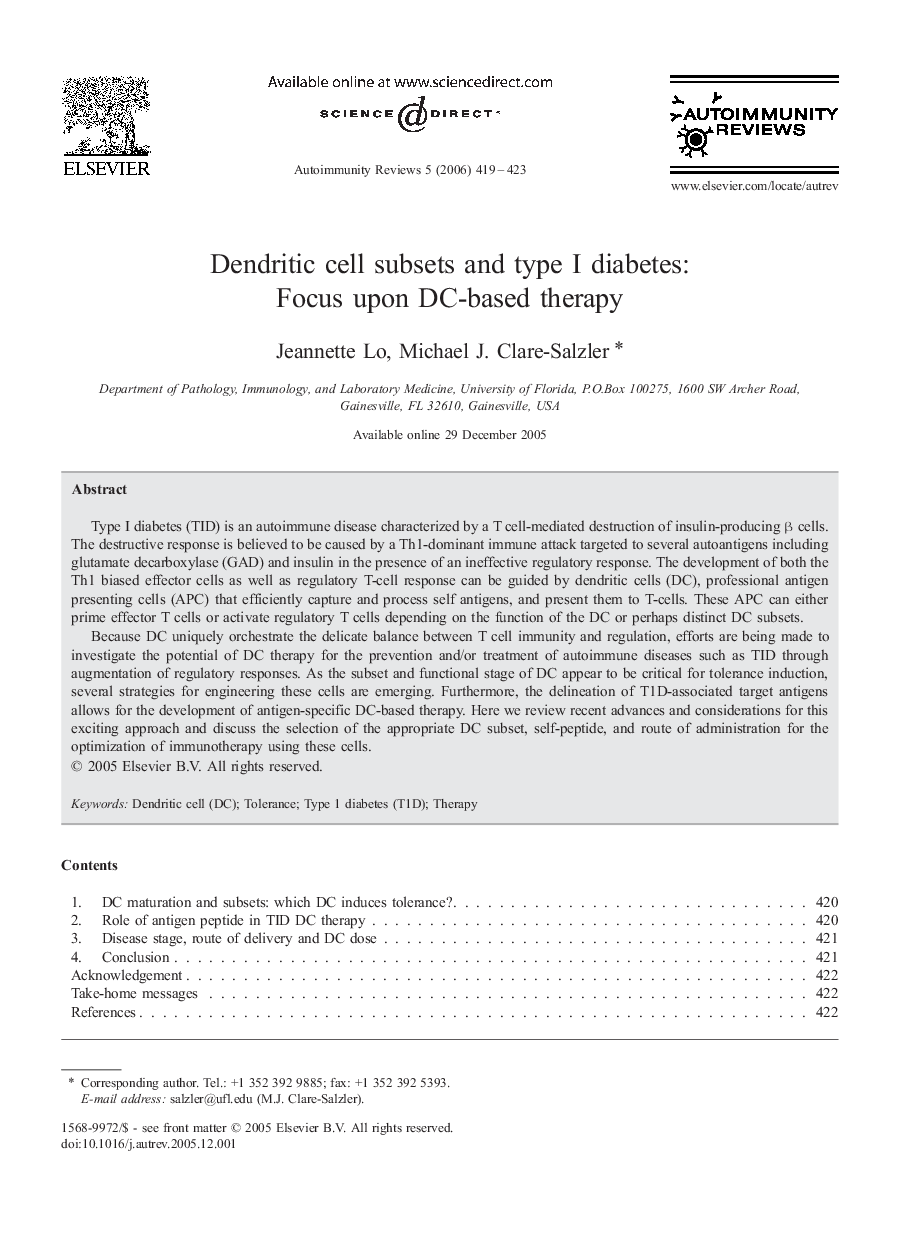| Article ID | Journal | Published Year | Pages | File Type |
|---|---|---|---|---|
| 3342685 | Autoimmunity Reviews | 2006 | 5 Pages |
Type I diabetes (TID) is an autoimmune disease characterized by a T cell-mediated destruction of insulin-producing β cells. The destructive response is believed to be caused by a Th1-dominant immune attack targeted to several autoantigens including glutamate decarboxylase (GAD) and insulin in the presence of an ineffective regulatory response. The development of both the Th1 biased effector cells as well as regulatory T-cell response can be guided by dendritic cells (DC), professional antigen presenting cells (APC) that efficiently capture and process self antigens, and present them to T-cells. These APC can either prime effector T cells or activate regulatory T cells depending on the function of the DC or perhaps distinct DC subsets.Because DC uniquely orchestrate the delicate balance between T cell immunity and regulation, efforts are being made to investigate the potential of DC therapy for the prevention and/or treatment of autoimmune diseases such as TID through augmentation of regulatory responses. As the subset and functional stage of DC appear to be critical for tolerance induction, several strategies for engineering these cells are emerging. Furthermore, the delineation of T1D-associated target antigens allows for the development of antigen-specific DC-based therapy. Here we review recent advances and considerations for this exciting approach and discuss the selection of the appropriate DC subset, self-peptide, and route of administration for the optimization of immunotherapy using these cells.
